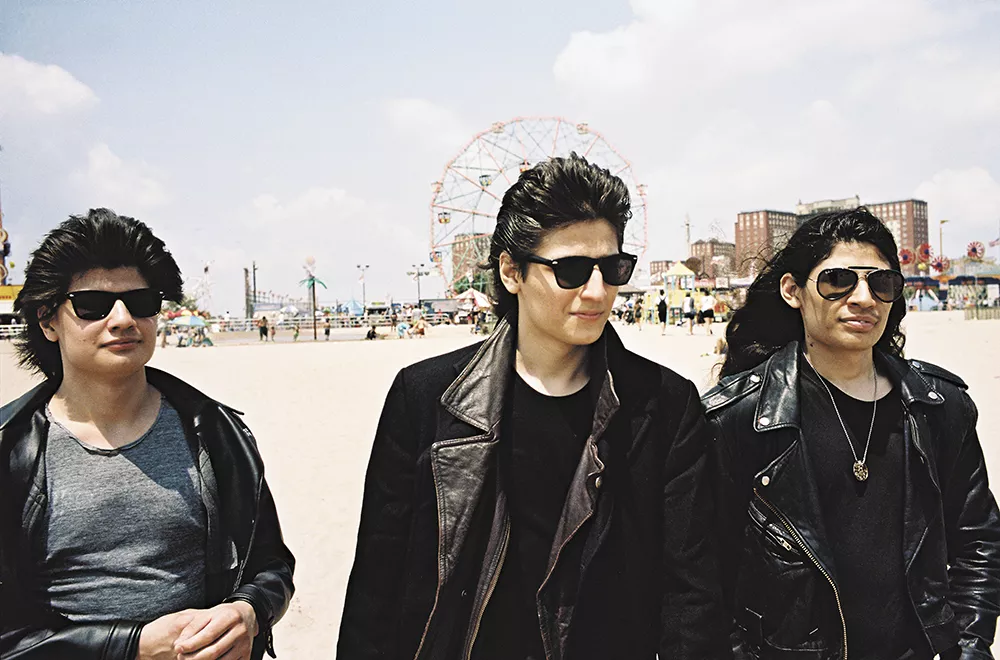Imagine living in New York City, one of the most vibrant, exciting cities in the world, but having parents so fearful of what lurked outside that they almost literally never let you out the front door of your house.
Then imagine those same overbearing parents having no issue providing you with a nonstop stream of TV and movies, from the violent to the fantastical to the profane, to occupy your time between home-schooling lessons.
The Wolfpack purports to show the results of just such an extreme upbringing by introducing the world to the six long-haired sons raised by Oscar and Susanne Angulo in a public-housing apartment on Manhattan's Lower East Side, their only ideas of the outside world gleaned from flicks like Pulp Fiction, The Nightmare on Elm Street or Halloween — all movies the boys gleefully reenact and film to entertain themselves in their home/prison.
The film opens with several scenes from the boys' adaptation of Reservoir Dogs, and besides being struck by their dedication to recreating Quentin Tarantino's hit heist movie (and one of the boys' delivery of a spot-on Steve Buscemi accent), among other homemade films shown throughout this documentary, one is entranced by this glimpse into how boys raised in such an atypical way seem so... normal.
Access to television and electronic media prepared the boys well for director Crystal Moselle's interviews — the boys are clearly smart, and funny, and know how to convey emotions on camera. Those interviews also are the strongest part of The Wolfpack, when the movie re-creations are pushed aside and the boys delve into the fear that ruled their lives growing up, leading to years when they were only allowed out of their apartment maybe once, if at all. They were trapped in a house where their father was often drunk, and physically abusive to their mother, until one of the boys snuck out for a day, and the others eventually followed.
Moselle never pushes the parents for much explanation of why they felt it necessary to "protect" their sons to such an extreme, or if they knew the psychological damage they were inflicting. Instead, she focuses the latter stages of The Wolfpack, with the boys' new experiences outside the apartment — easily the weakest part of the film. Even so, she succeeds at introducing the world to a story, and family, that is hard to believe. ♦

